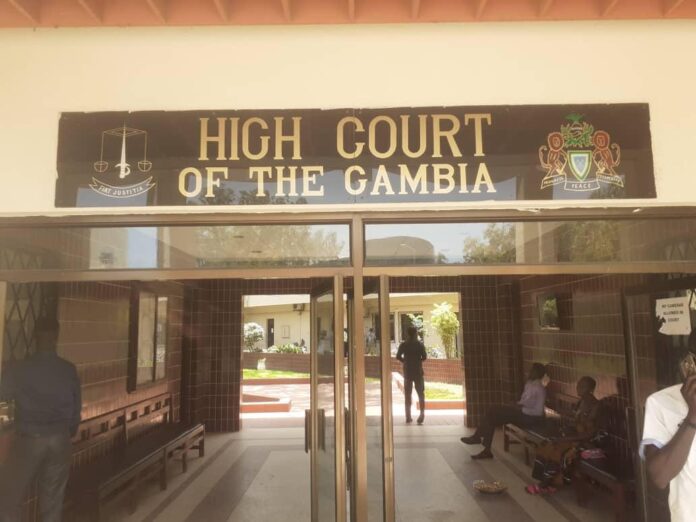By Kemeseng Sanneh (Kexx)
Lawyers for Sait Matty Jaw, Madi Jobarteh, Coach-Pasamba Jow, and Baboucarr Sufism Nyang have urged the Supreme Court to declare the 2025 budget submission and its acceptance by the National Assembly unconstitutional, arguing that it violates the mandatory timelines set by the Constitution.
The four plaintiffs sued the Clerk of the National Assembly and the Attorney General, challenging the legality of the Minister of Finance’s tabling of the 2025 Estimates of Revenue and Expenditure on 15 November 2024—well past the constitutionally mandated deadline of at least sixty days before the end of the financial year as required under Section 152(1) of the Constitution, amended in 2023.
Represented by Counsels Abdoulie Fatty, Salieu Taal, and Lamin J. Darboe, the plaintiffs contend that the Speaker of the National Assembly overstepped constitutional boundaries by accepting the delayed budget submission. Lead Counsel Fatty emphasized that his clients were acting in the public interest to uphold democratic principles, accountability, and the supremacy of the Constitution.
At the core of the plaintiffs’ argument is whether the National Assembly has the power to override or extend a constitutional deadline through its Standing Orders. Counsel Fatty submitted that such authority does not exist and that any deviation from Section 152 constitutes a breach of the Constitution.
He invoked Section 127(1)(a), which gives the Supreme Court original jurisdiction to interpret and enforce the Constitution, insisting that the matter before the court is squarely within its mandate.
Challenging the reliance on Order 8 of the National Assembly Standing Orders, Counsel Fatty argued that internal parliamentary rules cannot override the Constitution. He cited Gambia Participates & Anor v. Clerk of the National Assembly & Ors, where the Supreme Court ruled it could review National Assembly actions that allegedly violate the Constitution, even if procedurally grounded.
Fatty took issue with the Speaker’s position that Section 152 does not specify a consequence for late submission. He maintained that interpreting constitutional silence as permission to bypass timelines amounts to judicial reasoning—a function reserved exclusively for the Supreme Court under Sections 120(2) and 127(1)(a).
To bolster his case, Counsel Fatty cited Ghanaian cases such as Alexander Afenyo Markin v. Speaker of Parliament & AG and Justice Abdulai v. Attorney General, which establish that parliamentary procedure is not immune from judicial review when it conflicts with constitutional requirements. He stressed that under constitutional supremacy, even parliamentary standing orders must yield to constitutional mandates.
He underlined the mandatory nature of the language in Section 152(1), which states the President “shall” lay the estimates before the National Assembly at least sixty days before the end of the financial year. He argued that this imposes a binding obligation with no discretionary leeway.
Fatty concluded by urging the Supreme Court to declare the National Assembly’s acceptance of the late budget unconstitutional, nullify all subsequent actions based on it, and affirm the Constitution’s supremacy.
Counsel Lamin Fatty requested the Court to overturn the National Assembly’s decision, insisting that enforcing the constitutional timeline is essential for accountability and good governance. The case continues before the Supreme Court.

















